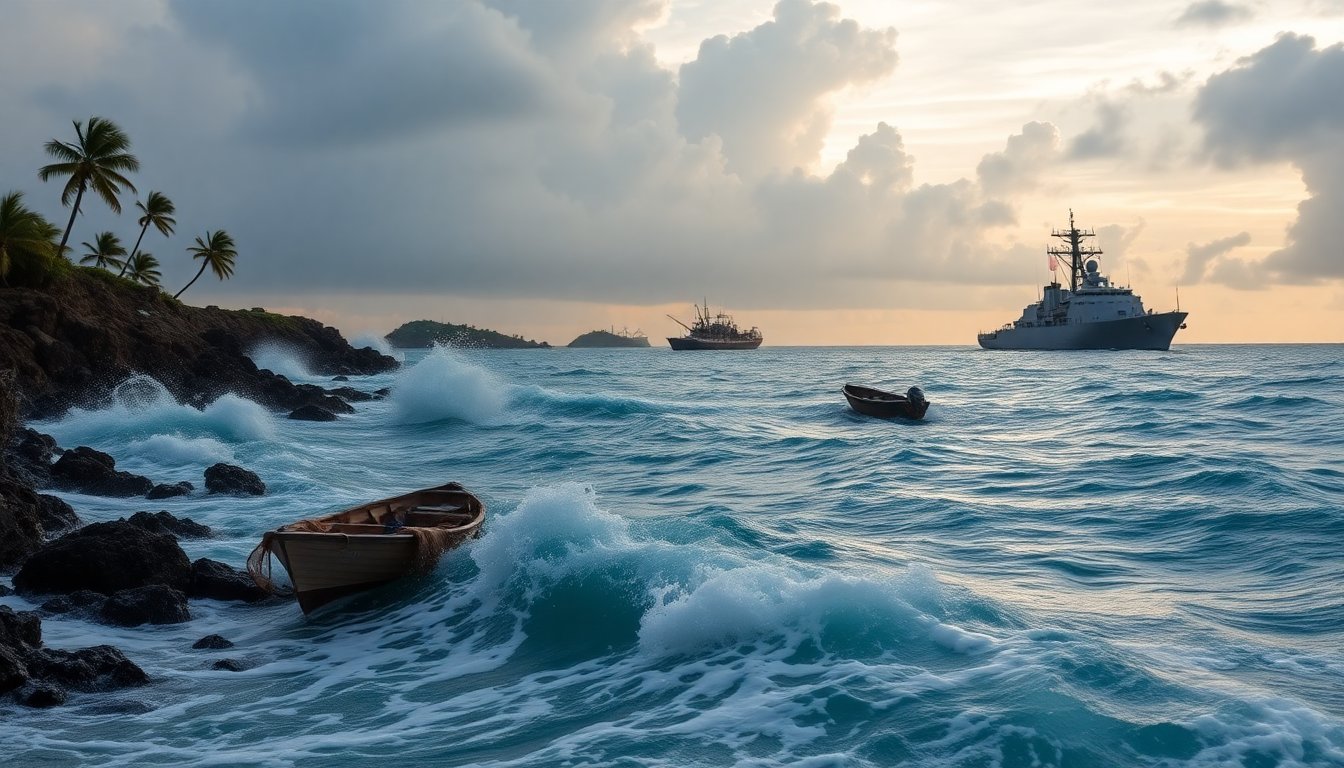Table of Contents
The Caribbean region is facing significant challenges due to military actions by the United States, which have instigated widespread fear and uncertainty. Recent incidents have resulted in the loss of at least 61 lives, severely impacting local fishing, tourism, and shipping industries. As tensions escalate, regional leaders are confronted with varying responses to the increased U.S. military presence.
U.S. military operations and their implications
Recently, the USS Gravely, a guided missile destroyer, docked in Trinidad and Tobago. This move is part of what the U.S. government describes as a counterdrug operation. However, this deployment has drawn criticism. Venezuelan authorities have condemned the U.S. actions, calling them a hostile provocation that threatens the peace of the Caribbean.
In addition, reports indicate that the aircraft carrier USS Gerald Ford has been repositioned nearer to Venezuela’s coast. This shift has raised concerns about potential military confrontations in the region.
Political ramifications
U.S. Senator Lindsey Graham has suggested that President Donald Trump may be contemplating ground strikes against Venezuela. This commentary reflects the administration’s view that the current Venezuelan leadership is involved in drug trafficking. Graham emphasized that decisive action is necessary against what he termed a sanctuary for narco-terrorists in both Venezuela and Colombia. As discussions progress, local governments are experiencing heightened anxiety regarding the safety and stability of their nations.
Local communities demand accountability
The consequences of recent military actions reach far beyond politics and economics, deeply affecting families in the region. Following the tragic death of a fisherman, families like that of Alejandro Carranza are seeking answers. Carranza’s parents have publicly expressed their disbelief regarding their son’s reported death, insisting on confirmation even as the government has classified it as a murder. This grief is intensified by a lack of transparency and communication from U.S. officials, which has led to increased anxiety among affected families.
Fears of an escalating conflict
Venezuelan President Nicolás Maduro has expressed concerns that the recent increase in U.S. military presence could ignite a new eternal war in the Caribbean. His remarks highlight a widespread anxiety that military interventions may lead to larger conflicts, affecting not only Venezuela but also neighboring Caribbean nations. Local leaders find themselves in a precarious situation, as they must navigate their diplomatic ties with the U.S. while safeguarding their countries against potential military repercussions.
The future of the Caribbean hangs in the balance
The increasing military presence and ongoing attacks in the Caribbean represent a pivotal moment for the region. Local communities, heavily reliant on tourism and fishing, now confront the harsh reality of potential conflict. As families call for justice and clarity, it is crucial for regional leaders to come together and tackle the threats posed by external military forces. Their efforts are essential to ensure peace and stability in the Caribbean.


